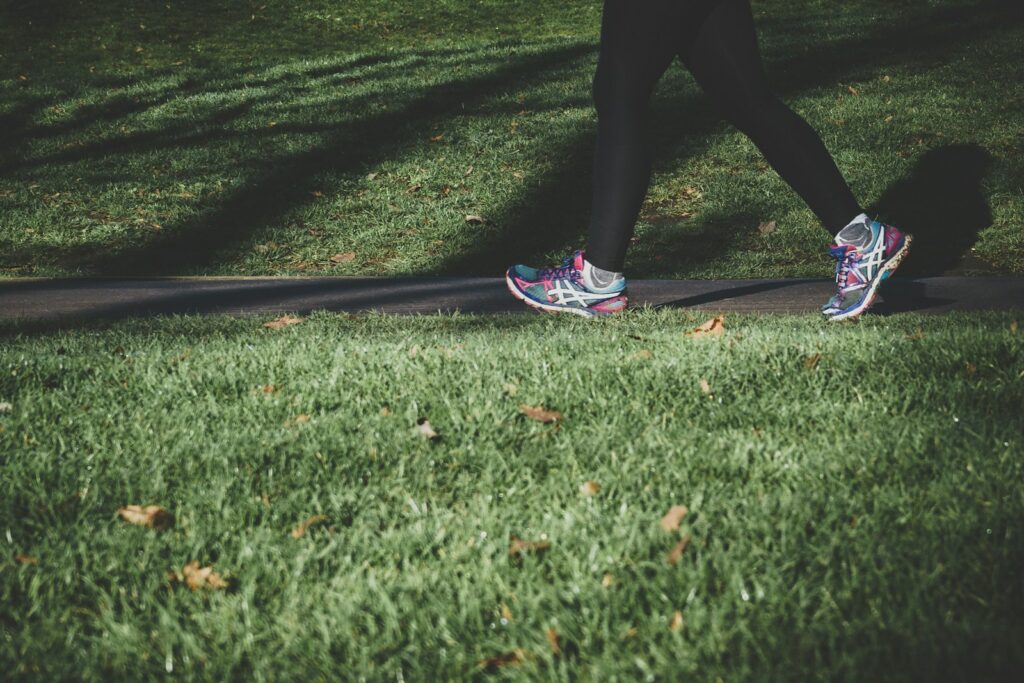Explore More
Manpo-Kei: 60 years of walking towards your health

60 years ago, in the lead-up to the Tokyo Olympics, Japan experienced a significant cultural shift towards prioritizing fitness and health in the general population. This change was catalysed by a growing awareness of the importance of regular exercise in combating lifestyle diseases such as hypertension, diabetes, strokes, and obesity, which were emerging as significant public health concerns.
Among the various forms of exercise, walking was a particularly accessible and effective option. It required no special equipment, training or coaching, making it suitable for people of all ages and fitness levels. This simplicity and accessibility made walking an appealing choice for individuals looking to improve their health and well-being without the barriers often associated with other forms of exercise.
Walking as a means of improving health was introduced by the Manpo-Kei concept, which literally means 10,000 steps in Japanese. This innovative device, essentially a pedometer, was introduced as part of a marketing campaign aimed at encouraging people to walk more. The concept was straightforward: aim to walk 10,000 steps a day, a figure believed to promote better health and fitness.
The Manpo-Kei quickly gained popularity and became a symbol of Japan’s burgeoning interest in personal fitness and well-being. It provided a tangible and measurable target for individuals to strive towards, helping to motivate them to incorporate more physical activity into their daily lives. As the host nation, Japan embraced the opportunity to promote its culture of fitness and athleticism to the world, further fuelling the momentum behind initiatives like the Manpo-Kei and the broader push for increased physical activity.
In the decades since its introduction, the concept of walking 10,000 steps a day has crossed many borders and cultures, becoming a global symbol of the importance of regular physical activity for maintaining health and well-being, despite some sceptics’ opinions. While the specific number of steps may vary depending on individual factors such as age and fitness level, the underlying message remains clear: incorporating more movement into our daily lives is key to leading healthier, happier lives.
Walking has become a widely recognized easy goal for maintaining good health and fitness, a low-impact exercise that almost anyone can do, regardless of age or fitness level. It requires no special equipment other than a good pair of shoes and can be easily incorporated into daily routines. Whether it’s walking to work, taking the stairs instead of the elevator, or going for a leisurely stroll after dinner, finding opportunities to replace driving with taking more steps throughout the day can really help your health and uplift your emotions.
The health benefits of walking are numerous and well-documented. Regular walking can improve cardiovascular health by strengthening the heart, lowering blood pressure, and reducing the risk of heart disease and stroke. It also helps in maintaining a healthy weight by burning calories and boosting metabolism. Additionally, walking can improve mood, reduce stress, and enhance mental well-being by releasing endorphins, the body’s natural mood lifters.
Reaching 10,000 steps a day may seem daunting at first, but breaking it down into smaller, manageable goals can make it more attainable. Starting with a baseline step count and gradually increasing it over time can help build endurance and make walking a sustainable habit. Tracking progress using a pedometer, smartphone app, or wearable fitness device can provide motivation and accountability.
Cardiovascular Health Benefits
Beyond just a number like 10,000 steps or less, walking is a winner. The American Heart Association advocates this regimen for lowering blood pressure and enhancing circulation. You might be stepping away from the risk of heart ailments when you inch closer to the walking ritual.
Tipping the Scales
You’re not only burning calories but also stepping on the path to weight management with each stride. Keeping obesity at bay could be as effortless as achieving those 10,000 steps daily.
Type 2 Diabetes: Can You Walk Away?
Every step you take is a step against the threat of type 2 diabetes. Regular physical activity, as revealed by the Diabetes Prevention Program, boosts insulin sensitivity, giving you a fighting chance against this chronic disease.
Your Personal Anti-depressant
Walking isn’t merely a physical activity; it doubles as an emotional enabler too. Minimalizing anxiety, combating depression, and keeping stress at bay – walking does it all by balancing hormonal levels.
Cognitive Edge
Stride towards a sharper memory and better cognitive function with every step along the way. Walking raises a barrier against neurodegenerative diseases – a reassuring finding supported by research published in the British Journal of Sports Medicine.
Guard Your Bones
Your steps could be the bolster your bones needed against osteoporosis. Walking is a weight-bearing exercise that can potentially increase bone density, hence reinforcing bone health.
Experience Improved Sleep
Swap counting sheep for counting steps! Regular walking can enhance both the quality and duration of your sleep, according to a study published in Sleep Medicine.
Step Up Your Mood: Emotional Lift
How about some sunshine for your soul? Walking outdoors introduces you to a powerhouse of natural light, regulating your circadian rhythm and giving an overall boost to your mood.
Live Longer and Healthier
Walking could be your stepping stone to longevity. Meeting your daily 10,000 steps goal is linked to a longer lifespan – a finding published in the Journal of the American Medical Association.
The beauty of walking lies in its accessible nature and sustainability as a habit. You need nothing more than a determination to lace up and step out.
Wrapping Up
It’s important to note that while walking 10,000 steps a day is a worthwhile goal, any amount of physical activity is beneficial. Even if you don’t reach the full 10,000 steps every day, every step counts towards improving your health and well-being. The key is to find activities you enjoy and make them a regular part of your routine. Including more walking into your daily life, helps you reap the numerous benefits it offers and take significant strides towards a healthier lifestyle.
Walking 10,000 steps a day has undeniable and multifaceted health benefits. Irrespective of your current state, adding this exercise into your daily life will help you step closer to a healthier and happier version of you. Don’t wait for the perfect moment; lace those shoes up and take that step towards holistic wellbeing right away!
Do you want to share your story and inspire our readers ? Know that YOUR EXPERTISE is paving the way for a brighter, happier future.



